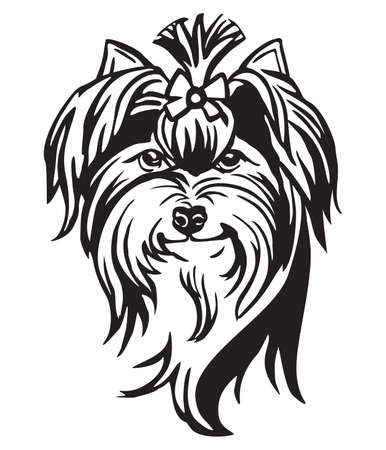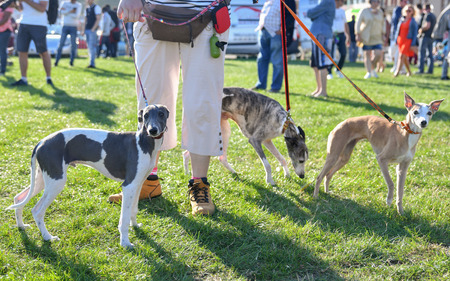Introduction to Pet Care Services in the UK
The pet care industry in the United Kingdom has experienced remarkable growth over the past decade, reflecting the nation’s deep affection for companion animals. With more households owning pets than ever before, there is a rising demand for reliable pet sitters and professional dog walkers. This trend is not just a result of busy lifestyles but also a testament to the British commitment to animal welfare and responsible pet ownership. Pet sitting and dog walking services play an essential role in supporting working families, elderly pet owners, and those with limited mobility, ensuring pets receive the exercise, socialisation, and care they need when their owners are away or unable to provide it themselves.
Beyond simply walking dogs or feeding cats, these services help address broader public health and community wellbeing objectives. Regular exercise for pets contributes to their physical and mental health, reducing risks associated with obesity and behavioural issues. For owners, knowing their pets are cared for by trained professionals brings peace of mind and fosters stronger community ties among neighbours who share a passion for animal welfare. The table below highlights key statistics that illustrate the significance of pet care services in British society:
| Aspect | Details |
|---|---|
| Pet Ownership in UK Households | Over 60% (2023 data) |
| Estimated Number of Professional Pet Sitters & Dog Walkers | 30,000+ |
| Annual Growth Rate of Industry | 8-10% |
| Main Service Users | Working professionals, elderly residents, families |
This flourishing sector not only meets practical needs but also reinforces the UK’s strong culture of animal protection. As demand continues to rise, understanding the legal responsibilities and regulatory requirements for pet sitters and dog walkers becomes ever more crucial—for both carers and the families who depend on their services.
2. Relevant UK Laws and Regulations
When working as a pet sitter or dog walker in the UK, it is essential to understand the legal framework that governs your responsibilities. The primary piece of legislation is the Animal Welfare Act 2006, which sets out the duty of care for all animals and outlines the standards required for their well-being. Under this act, carers must ensure pets have access to a suitable environment, diet, exhibit normal behaviour patterns, and are protected from pain, suffering, injury, and disease.
The Animal Welfare Act 2006: Key Points
| Requirement | Description |
|---|---|
| Suitable Environment | Animals must be kept in conditions that meet their physical and behavioural needs. |
| Diet | Pets should receive a nutritious and appropriate diet with access to fresh water. |
| Health | Carers must protect animals from pain, suffering, injury, and disease; seeking veterinary care if needed. |
| Behaviour | Pets must be allowed to express normal behaviours relevant to their species. |
| Supervision | Adequate supervision should be provided to ensure safety and welfare at all times. |
Licensing Requirements for Pet Sitters and Dog Walkers
Certain activities such as boarding dogs or cats require a licence from the local council under The Animal Welfare (Licensing of Activities Involving Animals) (England) Regulations 2018. This applies whether you are caring for pets in your own home or offering daycare services. Dog walkers who handle multiple dogs at once may also require a licence in some local authorities, so it is advisable to check with your council for specific requirements.
Summary Table: Legal Considerations for Carers
| Regulation/Act | Applies To | Main Requirement | Authority/Contact |
|---|---|---|---|
| Animal Welfare Act 2006 | All pet carers | Duty of care for animal welfare standards | N/A (national legislation) |
| Licensing Regulations 2018 (England) | Borders/daycare providers for dogs/cats | Council licence required; premises inspection; record keeping; health plans for animals cared for more than 24 hours | Your local councils licensing team |
| Local Bylaws (varies) | Mainly dog walkers (especially with multiple dogs) | Parks restrictions; lead regulations; dog fouling rules; commercial dog walking permits in certain boroughs/councils | Your local council or borough authority website |
Compliance Is Key for Professional Carers
Adhering to these regulations not only protects the animals in your care but also builds trust with pet owners. Staying informed about current laws and any updates from your local council is vital to operating responsibly and legally as a pet sitter or dog walker in the UK.

3. Legal Responsibilities of Carers
When working as a pet sitter or dog walker in the UK, there are specific legal responsibilities that must be upheld to ensure the safety, health, and welfare of animals under your care. These responsibilities are designed not only to protect the pets but also to safeguard carers from potential legal complications. Understanding these duties is crucial for anyone involved in animal care services.
Animal Welfare Standards
Under the Animal Welfare Act 2006, carers must meet the five basic welfare needs of animals:
| Welfare Need | Description |
|---|---|
| Suitable Environment | Providing appropriate shelter and living conditions |
| Suitable Diet | Ensuring access to fresh water and a balanced diet suitable for the species and breed |
| Exhibit Normal Behaviour | Allowing animals opportunities to behave naturally, such as exercise and play for dogs |
| Companionship Needs | Making sure social species have companionship, or solitude for those that prefer it |
| Protection from Pain, Suffering, Injury, and Disease | Taking reasonable steps to prevent illness or injury and seeking veterinary care when needed |
Duty of Care Explained
The duty of care goes beyond meeting basic needs—it means taking proactive steps to anticipate and address risks to animal welfare. This includes being vigilant for signs of illness, stress, or distress, following owners’ instructions closely, administering medication if required (with appropriate training), and never leaving pets unsupervised in situations that could endanger them. Pet sitters and dog walkers are legally obliged to act in the best interest of each animal at all times.
The Importance of Risk Assessments
Conducting thorough risk assessments is an essential part of a carer’s legal responsibility. This process involves identifying potential hazards during walks or home visits—such as escape routes, aggressive encounters with other animals, or unsuitable weather conditions—and putting measures in place to minimise these risks. For example:
| Potential Risk | Preventative Action |
|---|---|
| Dog escaping through open gates/doors | Always check boundaries; use leads until secure areas are confirmed safe |
| Heatstroke during summer walks | Avoid midday outings; carry water; monitor for overheating signs |
| Conflict with other dogs in public spaces | Select quieter walking routes; maintain control with appropriate equipment; assess dog temperament before group walks |
| Ingestion of harmful substances outdoors | Remain vigilant; discourage scavenging; know local toxic plants/substances |
Maintaining Records and Communication
Pertinent records—such as pet profiles, consent forms, medical details, and incident logs—should be diligently maintained. Open communication with pet owners about their animal’s behaviour or any incidents is also vital for transparency and ongoing trust.
4. Insurance and Liability Considerations
For pet sitters and dog walkers in the UK, having the right insurance is vital for both legal compliance and peace of mind. Accidents can happen, no matter how careful you are, so it’s essential to ensure that both you and your clients are protected from potential risks. Below is a breakdown of the most important types of insurance and liability cover you should consider:
Essential Insurance Policies
| Type of Cover | Description | Why It’s Important |
|---|---|---|
| Public Liability Insurance | Covers injury to third parties or damage to property caused by the pet in your care. | Mandatory for most professional pet carers; protects against claims if a dog knocks someone over or damages a neighbour’s property. |
| Care, Custody & Control Insurance | Covers accidental injury, illness, or death of an animal while in your care. | Essential for safeguarding against claims from pet owners if something happens to their animal. |
| Employers’ Liability Insurance | Covers injuries or illnesses suffered by employees while working for you. | A legal requirement if you employ anyone, even on a casual basis. |
| Professional Indemnity Insurance | Covers legal costs from claims of professional negligence, such as failing to administer medication correctly. | Recommended for those offering specialist services like medical care or behavioural training. |
Public Liability: A Must-Have for Pet Carers
Public liability insurance is often considered non-negotiable for pet sitters and dog walkers in the UK. It shields you from financial loss if a client or member of the public is injured, or if property is damaged due to your activities. Many clients and local councils require proof of this cover before hiring or licensing carers. Always check your policy details to ensure pets in your care are explicitly included.
Steps to Protect Yourself and Your Clients
- Document Everything: Keep written agreements with all clients outlining responsibilities, emergency contacts, and consent forms for veterinary treatment.
- Risk Assessments: Regularly assess walk routes and home environments for hazards, especially if new pets are involved.
- First Aid Training: Consider obtaining pet first aid certification to confidently respond in emergencies.
- ID Tags & Microchips: Ensure all animals have up-to-date identification as required by law in the UK.
- Clear Communication: Maintain open channels with clients about any incidents, changes in routine, or concerns regarding their pets’ health or behaviour.
The Bottom Line
No matter how experienced or cautious you are, comprehensive insurance not only fulfils legal obligations but also builds trust with clients. By investing in the right cover and following best practices, you provide a safer environment for yourself, your clients, and their beloved pets.
5. Safe Practice and Preventive Measures
Ensuring the health and safety of pets, carers, and the wider community is a crucial part of pet sitting and dog walking in the UK. Adhering to best practices not only protects animal welfare but also helps carers fulfil their legal responsibilities. Below are key areas every professional pet sitter and dog walker should focus on.
Health and Safety Best Practices
Carers must be familiar with both animal welfare legislation and practical steps to minimise risks. This includes safe handling techniques, using appropriate equipment (such as secure leads or muzzles where necessary), and maintaining a clean environment. Regular risk assessments should be performed for each new client or location to identify any potential hazards.
Infection Control
Preventing the spread of infectious diseases is essential when caring for multiple animals or walking dogs from different households. Good hygiene practices—such as washing hands between visits, disinfecting equipment, and promptly cleaning up after animals—are standard expectations. Carers should also have a basic understanding of common zoonotic diseases (those transmissible between animals and humans) and ensure all pets are up-to-date with vaccinations before accepting them into their care.
| Infection Control Measure | Best Practice |
|---|---|
| Hand Hygiene | Wash hands before and after contact with each animal |
| Equipment Cleaning | Disinfect leads, bowls, toys after each use |
| Vaccination Check | Confirm pets are vaccinated according to UK guidelines |
| Waste Disposal | Use sealed bags and dispose of waste responsibly in designated bins |
Reporting Incidents
If an accident, injury, or behavioural incident occurs while an animal is under a carer’s supervision, it is vital to record the details accurately and report them to the owner as soon as possible. For more serious incidents—such as bites or suspected infectious disease outbreaks—local authorities may also need to be notified. Keeping clear records demonstrates professionalism and supports compliance with insurance requirements.
Managing Behavioural Risks
Understanding animal behaviour can prevent many common risks associated with pet sitting and dog walking. Carers should assess each animal’s temperament before taking responsibility for them, asking owners about any triggers, anxieties, or aggression issues. In public spaces, dogs must be kept under control at all times according to The Control of Dogs Order 1992, which may mean using leads or muzzles for certain breeds or individuals.
| Risk Factor | Preventive Action |
|---|---|
| Aggression towards people/animals | Use a muzzle; avoid busy parks; walk solo if necessary |
| Anxiety or escape attempts | Double-check harness fit; choose quieter routes; carry ID tags on collars |
| Poor recall off-lead | Avoid off-lead exercise unless in secure areas; use long training leads if appropriate |
The Importance of Ongoing Training
The field of pet care is constantly evolving with new research on animal welfare and safety standards. Carers are encouraged to undertake regular training in first aid for animals, behaviour management, and infection control to stay compliant with UK regulations and provide the highest standard of service.
6. Best Communication with Pet Owners
Effective and transparent communication is essential for pet sitters and dog walkers in the UK, not only to meet legal requirements but also to align with consumer expectations for professionalism and trust. Clear agreements help prevent misunderstandings, ensure the welfare of the pets, and support a positive experience for both parties. Below are guidelines to maintain high standards of communication:
Key Elements of Transparent Communication
| Aspect | Best Practice | UK Consumer Expectation |
|---|---|---|
| Initial Consultation | Meet in person or virtually to discuss pet needs, routines, and any health issues. | Expect open dialogue and willingness to answer all queries. |
| Written Agreement | Provide a clear contract outlining services, fees, dates, emergency procedures, and cancellation policies. | Value transparency and legal clarity; written agreements are preferred over verbal arrangements. |
| Daily Updates | Share regular updates via text, email, or photos as agreed upon. | Expect consistent reassurance about their pet’s well-being. |
| Incident Reporting | Immediately inform owners of accidents, illnesses, or behavioural concerns. | Prompt, honest disclosure is highly valued and builds trust. |
| Feedback Channels | Create channels for feedback before, during, and after service delivery. | Appreciate opportunities to review and influence care provided. |
Setting Clear Agreements
Written contracts: Under UK law, having written agreements helps protect both carers and clients. Clearly state what services will be provided (e.g., walks per day, feeding instructions), outline responsibilities on both sides, include terms for cancellations or changes, and specify liability in case of emergencies. This aligns with the UK’s emphasis on consumer rights and fair trading standards.
Examples of Essential Contract Clauses:
- Description of Services: Detailed schedule of visits/walks and additional duties (medication administration, cleaning up accidents).
- Emergency Procedures: Contact information for vets and authorisation for emergency treatment.
- Cancellations & Refunds: Clear policy on notice periods and refunds in line with the Consumer Rights Act 2015.
- Insurance & Liability: Details about public liability insurance and coverage limits.
Cultural Considerations in the UK
The UK values politeness, reliability, and promptness in service-related communications. Carers should address clients formally at first (e.g., Mr/Mrs/Ms), respond quickly to messages (ideally within 24 hours), and use courteous language at all times. Regular check-ins during longer bookings are appreciated by British clients who often see pets as family members. Transparency regarding qualifications—such as DBS checks or animal care training—also reassures owners about professional standards.
7. Resources and Continuing Professional Development
Staying informed and up-to-date is crucial for pet sitters and dog walkers in the UK, especially as regulations and best practices frequently evolve. Ongoing professional development not only ensures compliance with the law but also supports the highest standards of animal welfare. Below, we outline key recommendations for further training, essential support networks, and trusted resources for accessing the latest information on UK pet care regulations.
Recommendations for Further Training
Investing in recognised training courses can enhance your skills, credibility, and legal knowledge. Some reputable providers include:
| Training Provider | Course Focus | Website |
|---|---|---|
| The National Association of Pet Sitters & Dog Walkers (NARPS UK) | Pet sitting, dog walking, health & safety | www.narpsuk.co.uk |
| PETbc (Pet Education, Training & Behaviour Council) | Canine behaviour, animal welfare legislation | www.petbc.org.uk |
| Animal Courses Direct | Professional pet care qualifications | www.animalcoursesdirect.co.uk |
Support Networks and Associations
Joining a professional association provides access to updated legal guidance, business support, insurance options, and a community of peers. The following organisations are widely recognised in the UK:
- NARPS UK: Offers resources, networking opportunities, and legal updates tailored to pet carers.
- PIF (Pet Industry Federation): Supports all types of pet care businesses with advice on compliance and best practices.
- BCCS (British College of Canine Studies): Provides educational resources and forums for ongoing learning.
Where to Find Up-to-Date Information
The landscape of animal welfare law is dynamic. Reliable sources for the most current guidance include:
- GOV.UK: The official government site offers comprehensive details on licensing requirements and animal welfare legislation.
- The RSPCA: Regularly publishes updates on animal welfare laws and responsible pet care guidelines.
- Your local council website: Essential for region-specific licensing rules or changes affecting pet businesses.
Continuing Professional Development (CPD)
Pursuing CPD is considered best practice within the industry. This can involve attending workshops, webinars, industry conferences, or completing online modules focused on areas such as canine first aid or risk assessment. Recording your CPD activities demonstrates commitment to quality service and regulatory compliance—an attractive quality for both clients and insurers.
Summary Table: Key CPD Activities
| Activity Type | Description |
|---|---|
| Workshops & Seminars | Face-to-face events covering legal updates and practical skills |
| Online Courses | E-learning on animal welfare or small business management |
| Networking Events | Opportunities to share experiences with other professionals |
By prioritising continuous learning and tapping into reputable resources, UK pet sitters and dog walkers can confidently navigate their legal responsibilities while delivering safe, ethical, and high-quality care to every animal entrusted to them.

